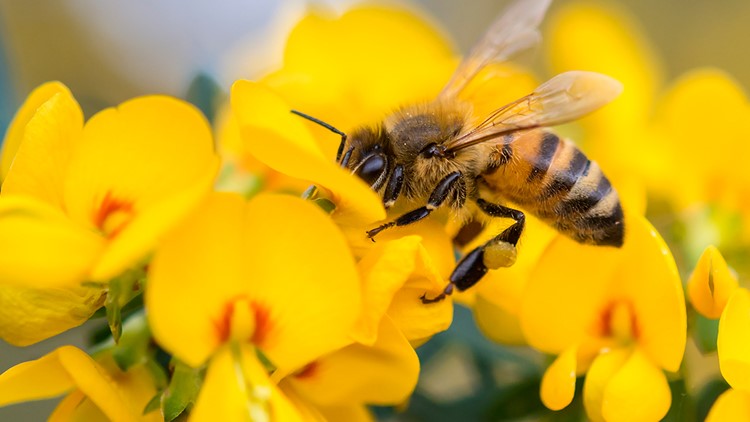VIRGINIA (WVEC) -- About 60 percent of honeybee colonies were lost this winter, according to the Virginia Department of Agriculture and Consumer Services on Tuesday.
The percentage of lost bees is greater than expected. This was the highest rate since 2000 when the state started monitoring winter losses.
The department found high levels of Varroa mites and nosema infection in wintering bees. Both of the maladies shorten the life expectancy of worker bees and increase mortality rate during the winter.
Nationally, 30.7 percent of managed colonies in the United States were lost this winter. That's a 9.5 percent increase from last winter.
In Virginia, there are a total of 551 recorded beekeepers and 4479 honeybee colonies. In the United States, Arizona had the greatest loss of bees over the winter with a 71.9 percent.
According to the Virginia Department of Agriculture and Consumer Services, the loss of honeybees is due to the combination of environmental conditions, loss of habitat, pests, and diseases such as Varroa mites, small hive beetles and nosema, pesticides around beehives, and other factors impacting the sustainability of honeybees and other insect pollinators.
People are encouraged to become beekeepers, and existing beekeepers to add to their existing hives. Homeowners are also encouraged to plant pollinator gardens and window boxes. Farmers can even help the bee population by having bee-friendly plants around crop field. Beekeepers should be on the lookout for Varroa mites in their hives in July and August.
The department is also encouraging communication between pesticide applicators and beekeepers and to keep the pollinators safe.
To learn more about the loss of honeybees in Virginia, click here.
► Make it easy to keep up to date with more stories like this. Download the 13News Now App.



